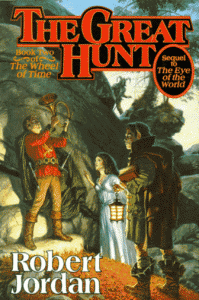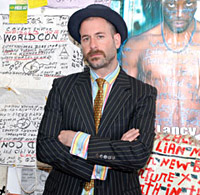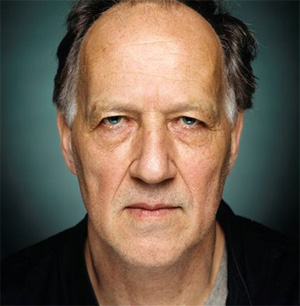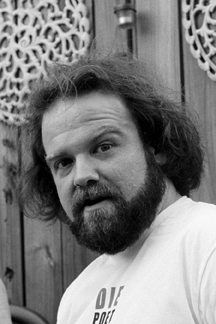Not tonight, darling. I have to finish this John Vanbrugh play. And, uh, I have a headache
 I imagine that I’m not the only one that carries around up to half a dozen books with them everywhere they go, at all times. I really hate having any kind of down time with nothing to read. Doctor’s office, in line at Walgreens, on my way to sell books at the Strand, less exciting moments in foreign movies I’m watching, or for when my lady friend is watching Top Chef. Whatever. One of the few I was lugging along on the train today—Crossing to Safety by Wallace Stegner (which is pretty great so far, fyi)—had an interesting passage that got me to thinking about the previously unconsidered victims of my solipsistic and obsessive habits.
I imagine that I’m not the only one that carries around up to half a dozen books with them everywhere they go, at all times. I really hate having any kind of down time with nothing to read. Doctor’s office, in line at Walgreens, on my way to sell books at the Strand, less exciting moments in foreign movies I’m watching, or for when my lady friend is watching Top Chef. Whatever. One of the few I was lugging along on the train today—Crossing to Safety by Wallace Stegner (which is pretty great so far, fyi)—had an interesting passage that got me to thinking about the previously unconsidered victims of my solipsistic and obsessive habits.
“You must have brought something. Books? I never saw you without a green bag of books.” To her mother she says, “He reads everywhere—in the subway, between the acts at plays, at intermissions in Symphony Hall, on picnics, on dates.”
This speech conveys considerable information to Aunt Emily. She watches Sid’s eyes close in mock agony, while a really very engaging smile takes over from the sheepishness on his face. “Well, there’s so much to read, and I’m so far behind. Everybody’s read ten times more than I have.”
“What did you bring?” Charity asks. “Restoration dramas?”
“I’m taking a rest from those. I’ve just got some hole-fillers. Middlemarch, The Idiot, things like that, novels I should have read but haven’t.”
When is it okay to bring along books, and when is it not? Dinner parties? The bar? Bar Mitzvahs? Sporting events? Sporting events where your team sucks and them losing is a foregone conclusion but you still want to tacitly show your admittedly wavering support? Please advise.
Power Quote: The Conservative Bible Project

Socialistic terminology permeates English translations of the Bible, without justification. This improperly encourages the “social justice” movement among Christians.
For example, the conservative word “volunteer” is mentioned only once in the ESV, yet the socialistic word “comrade” is used three times, “laborer(s)” is used 13 times, “labored” 15 times, and “fellow” (as in “fellow worker”) is used 55 times.
The Conservative Bible Project.
Maybe they can just remove Jesus entirely.
Uh…Power Quote?: Richard Buckner

“I have a degree in creative writing — but trying to get a job with that, well, you might as well be a felon.”
-Richard Buckner, in an interview with the Chicago Tribune
Hey, it’s dark humor time! I’m posting this partly because it’s funny, and partly because Richard Buckner is fucking awesome and you should go buy, or download or whatever it is you kids do these days, Devotion + Doubt, an album which I have taken the liberty of subtitling “How Michael Schaub Survived College Station, Texas, 1997-1998.” I mean really.
Power Quote: William Blake Runs the Voodoo Down

To Me This World is all One continued Vision of Fancy or Imagination, & I feel Flatter’d when I am told so. What is it sets Homer, Virgil & Milton in so high a rank of Art? Why is the Bible more Entertaining & Instructive than any other book? Is it not because they are addressed to the Imagination, which is Spiritual Sensation, & but mediately to the Understanding or Reason?
– letter to the Rev. Dr. Trusler, 23 August, 1799
Those who follow tradition are ignored

Brion Gysin famously said, “Writing is fifty years behind painting.” And it looks like Kenneth Goldsmith would agree:
What I learned in the art world is that anything goes. The further you can push something, the more it is rewarded: to shoot for anything less in the art world is career suicide. The art that is deemed the most valuable is rarely the most finely-crafted, the most expressive, or the most “honest” works, but rather those which either attempt to do something that’s never been done before or those that synthesize older ideas into something new. Risk is rewarded. Those who follow tradition in a known, dogged, and obligatory manner are ignored. Unlike the poetry world, the mainstream of the art world since the dawn of modernism has been the avant-garde, the innovative, the experimental. The most cutting-edge work — the work with the biggest audience and historical import — has been the most challenging.
–from “The Tortoise And The Hare: Dale Smith and Kenneth Goldsmith Parse Slow and Fast Poetries” in Jacket 38
Power Quote 2: Herzog

“It does not bespeak great wisdom to call the film The Bad Lieutenant, and I only agreed to make the film after William (Billy) Finkelstein, the screenwriter, who had seen a film of the same name from the early nineties, had given me a solemn oath that this was not a remake at all. But the film industry has its own rationale, which in this case was the speculation of some sort of franchise. I have no problem with this. Nevertheless, the pedantic branch of academia, the so called ‘film-studies,’ in its attempt to do damage to cinema, will be ecstatic to find a small reference to that earlier film here and there, though it will fail to do the same damage that academia — in the name of literary theory — has done to poetry, which it has pushed to the brink of extinction. Cinema, so far, is more robust. I call upon the theoreticians of cinema to go after this one. Go for it, losers.”
-more via The Awl
Power Quote: Shelley
Ah, woe is me!
What have I dared? where am I lifted? how
Shall I descend, and perish not? I know
That Love makes all things equal: I have heard
By mine own heart this joyous truth averred:
The spirit of the worm beneath the sod,
In love and worship, blends itself with God!
–Epipsychidion
Ander Monson Will Hack You

Ander Monson
I re-read Ander Monson’s brilliant “Essay as Hack” today and thought I might share a section for anyone out there who is writing memory-based stories or personal essays.
The brain reconfigures memory, reorders events, resets them among other events to form narrative, causality: it creates sense. The mind tells itself stories about what happens to it. So me saying that I did X because of Y rests on thousands of assumptions about who or what I think I am, how I thought of myself then—transmuted into how I think about myself now.
…Any sort of attempt to sort meaning from the past is fraught in thousands on thousands of ways, exponentially splintering. The more you think about it the more it asymptotically approaches impossibility.
This is not to suggest we shouldn’t attempt it. The attempt is glorious, and attempting rewires the brain. It moves the circuitry around, attaching a new conclusion to an action, reconstructing self. In a way, thinking about the self hacks it.
Power Quote: DFW
Felt better putting this up a couple of days after the anniversary:
This is the great nightmare when you are doing something long and hard—you’re terrified that it will be perceived as gratuitously long and hard, as some “avant garde for its own sake” exercise. And having done some of that stuff, I think, early in my career, I was really scared about it. The trick of this—I’ve got this whole rant about it—I think a lot of avant garde fiction and serious literary fiction that bitches and moans about readers defection, in blaming it all on TV, a lot of the avant garde has forgotten that part of its job is to seduce the reader into being willing to do the hard work.
—David Foster Wallace talking about Infinite Jest on Bookworm.
Congratulations to anyone who enjoyed an Infinite Summer.
(Can I express my quiet dismay over the idea that a fine tribute to a great writer is moving on and, sans name and domain change, becoming a book club? I have nothing against book clubs. I have nothing against Dracula. I guess I don’t really understand, though, why a thing can’t have a single focus, carry out a task until completion, and then just end.)


